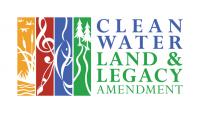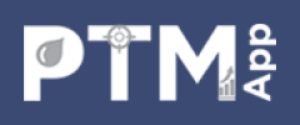Inside this Issue:
Important upcoming dates
FY25 CWF Competitive request summary
Upcoming grant trainings at BWSR Academy
FY25 Watershed Based Implementation Funding Request open
Clean Water Legacy Partners RFP open
Prioritize Measure Application (PTMApp) program updates
Best Management Practice Data Updated on the MnGEO Commons
Grants fall clean-up!
Amendments for grants expiring 12/31/24
Tip of the Quarter
Important upcoming dates
Oct. 15: HELP work plan submittal deadline
Oct. 29-31: BWSR Academy - Cragun's, Brainerd, MN
Dec. 15: Deadline to return grant amendments to BWSR for grants expiring 12/31/24
Dec. 31: Many grants expire
Feb. 1: Annual grant reporting deadline
FY25 CWF Competitive request summary
The RFP for FY25 Clean Water Fund (CWF) Competitive grant programs closed on Aug. 22, 2024 with applications currently in the review process. BWSR received a total of 66 applications, with requests totaling $20,682,760.
FY24 Competitive Clean Water Grant Funding Requested: | ||
|---|---|---|
Program Name | Total Number | Total |
| Accelerated Implementation | 17 | $2,325,114 |
| Projects and Practices | 38 | $16,310,174 |
| Projects and Practices - Drinking Water | 11 | $2,047,472 |
Upcoming grant trainings at BWSR Academy
Connect with us at BWSR Academy! Below are session summaries for some grants related trainings offered Oct. 29-31 at Cragun’s Conference Center. Visit BWSR Academy for more details.
Oct. 29 1:30-3:00 - The Magic of eLINK: Secrets Revealed!: Summon the magic of eLINK by learning the tips and tricks to make you an eLINK wizard. Work hands-on entering different types of sample projects from start to finish. All BWSR grant recipients are encouraged to participate. With a goal of completing your progress reports completely and accurately the first time, you will leave this session with new magical powers to pull a successful eLINK report out of a hat! You are welcome to bring your own laptop if you would like to follow along, but it isn’t required.
Oct. 29 10:30-12:00 - Understanding the Fiscal Landscape of BWSR Grants: Are you new to financial reporting on BWSR Grants or need a refresher? This session will provide a high-level overview of the Grants Administration Manual, how to determine BWSR billable rates, the requirements of time tracking, and what to expect during a financial reconciliation. Participants will leave the session with a better understanding of grantee fiscal responsibilities.
For information about these and other sessions, view the Academy session descriptions and schedule.
Watershed Based Implementation Funding request open for FY25
In August 2023, approximately $76.5 million dollars in Watershed Based Implementation Funding (WBIF) grants was approved for 54 partnerships in greater Minnesota and 27 metro watershed planning areas in the Twin Cities metro area (Board Order 23-55). BWSR awards WBIF grants to partnerships with an approved comprehensive watershed management plan developed under BWSR’s One Watershed, One Plan Program or under the metro surface water and groundwater frameworks.
The funding request feature in eLINK is now open for Fiscal year 25! All planning areas that have not yet requested their allocated FY 24-25 WBIF may do so between now and April 30, 2025. BWSR will process funding requests and workplans on a monthly basis. This process involves two steps that require BWSR approval. First, the grantee makes a funding request in eLINK. This step must be done by an eLINK user from the organization that will sign the grant agreement. Second, the partnership completes the final work plan. The BWSR board conservationist must approve both the funding request and the work plan.
NEW for FY24-25 – Draft funding requests DO NOT expire at the end of the month. For more information, please visit the Watershed Based Implementation Funding Grant Program webpage.
BWSR added a provision to the FY24-25 WBIF policy making Minnesota Tribal Nations (“tribes”) eligible for WBIF. BWSR’s tribal liaison will work with tribes to determine their level of interest in participating in plan implementation. BWSR’s tribal liaison will notify groups where there may be tribal interest and, where needed, BWSR’s tribal liaison will support / facilitate discussions about incorporating funding for eligible activities to tribes in WBIF grant work plans.
Clean Water Legacy Partners (3 Funding Request Opportunities) RFP open through January 7, 2025
The Minnesota Board of Water and Soil Resources (BWSR) is now accepting grant applications for the Clean Water Legacy Partners Program, which seeks to protect, enhance and restore water quality throughout the state.
The RFP contains two grant opportunities: the Clean Water Legacy Partners Grant and the Green Infrastructure Grant. Non-governmental organizations, Tribal governments, the 1854 Treaty Authority, and the Great Lakes Indian Fish and Wildlife Commission are eligible to apply for the Clean Water Legacy Partners Grant. Watershed districts are eligible to apply for the Green Infrastructure Grant.
“These grants will support water quality protection and restoration work in even more Minnesota communities,” said BWSR Executive Director John Jaschke. “The program’s flexibility also helps the state of Minnesota support partners outside of BWSR’s typical clientele.”
A total of $2.95 million from the Clean Water Fund is available: $1.125 million is available for NGOs, $1.125 is available for Tribal government, and $450,000 is available for watershed districts. Grant requests must be between $50,000 and $250,000; a non-state match of at least 10%, provided via cash or in-kind services is required. The grants can be used for a wide range of conservation activities including urban stormwater practices, agricultural best management practices, shoreline stabilization projects, well sealing and public engagement efforts.
The application period opened on Oct. 7, 2024 and will close on January 7, 2025. How to apply
Prioritize Measure Application (PTMApp) program updates
The latest version of PTMApp Model is now optimized to use in Arc Pro 3.0 version of Geographic Information System software. ArcGUS Pro 2.8, ArcGIS Version 10.8, and ArcGIS Version 10.7 are no longer being supported.
Two one hour virtual webinar format trainings were organized and delivered on April 3, 2024 and April 25, 2024 to provide the overview of the PTMApp model background, capabilities and limitations along with latest updates to the model. Recording of the webinar can be viewed at PTMApp Learning Center at PTMApp Learning Center | MN Board of Water, Soil Resources (state.mn.us).
Two half day hybrid (In person/virtual) trainings were organized and delivered on June 12, 2024 and July 10, 2024.
These trainings included the general PTMApp model overview and background along with use of SPRUCE (Summarize by Priority Resources), BUDDI (Best Management Practice User Defined Digital Interface), and BEAST (Benefit Estimator and Summary Tool) tools to report the estimation of pollution reduction as outcomes of the conservation best management practices.
More training sessions are being planned for fall and winter months including a training session at 2024 BWSR Academy.
The BUDDI and SPRUCE tools are now available for download at https://ptmapp.bwsr.state.mn.us/User/PTMAppDesktop.
For more information, contact Udai Singh, BWSR Modeling and Outcomes Coordinator, at udai.singh@state.mn.us or 507-766-5020.
Best Management Practice Data Updated on the MnGEO Commons
BWSR updates the eLINK Best Management Practice (BMP) geospatial data on the MnGEO Commons on an annual basis. Recently, the data was updated to include practices reported for all grants that have been closed by May 22, 2024. This dataset includes all mapped BMPs associated with completed and closed grants. Practices connected with open grants considered “in progress” are included here only if an installed date has also been reported. Please be advised, any practice(s) associated with open grants are subject to change until all grants have final reports submitted, approved, and grants are closed. There are now over 49,073 records in the geographic information system (GIS) database available to the public. 45,870 of these are mapped and have only closed grants connected. 3203 are connected to open grants and 3,111 of these practices connected to open grants have an “Installed Date” reported. These mapped records are up from approximately 43,430 records in 2023, 41,000 records in 2022 and 39,000 in 2021.
Grants fall clean-up!
Fall is the time to pick up those rakes and start cleaning up the leaves, sticks and brush. Along with cleaning up your yard, you might as well clean up your grants by reporting expenditures and, submitting amendments and payment requests. The end of the year is coming and reporting season is right around the corner.
Reminder: With grant agreements and amendments now being distributed via DocuSign, if you are having difficulties or have any questions, please visit BWSR's website page Accessing your Grant Agreement or Amendment for guidance.
Amendments for grants expiring 12/31/24
Now is the time! Are you on track to complete projects and close out grants that will expire at the end of this year? Now is a good time to assess progress on any grants expiring at the end of 2024, and begin the conversation within your organization and with your Board Conservationist about whether an extension may be needed.
The Grant Agreement Amendments and Work Plan Revisions chapter of the BWSR Grants Administration Manual establishes the procedures for requesting an amendment, which should begin now!
Tip of the Quarter
Q. What type of documentation should a fiscal agent obtain from a grant recipient when managing a BWSR grant?
A. At a minimum, the fiscal agent would need the timeframe of services rendered (must fall within the BWSR grant period), number of hours worked, services provided, and hourly rate and/or amount charged. As fiscal agent, you would want documentation sufficient to provide reasonable assurance the invoice is accurate and appropriate for the services rendered. Services provided, as listed on the invoices, should align with reporting in the various categories within eLINK. If there are variances, please work with your Board Conservationist to make adjustments to the workplan/grant reporting. A fiscal agent could request detailed time tracking information in support of invoices submitted for services rendered but is not obligated to do so when BWSR funds are involved.
When reimbursing other local governments for equipment/materials purchased and charged to BWSR grants, obtaining copies of the supporting invoices is appropriate and a good accounting practice. See the Allowable and Unallowable Costs chapter of the Grants Administration Manual.



